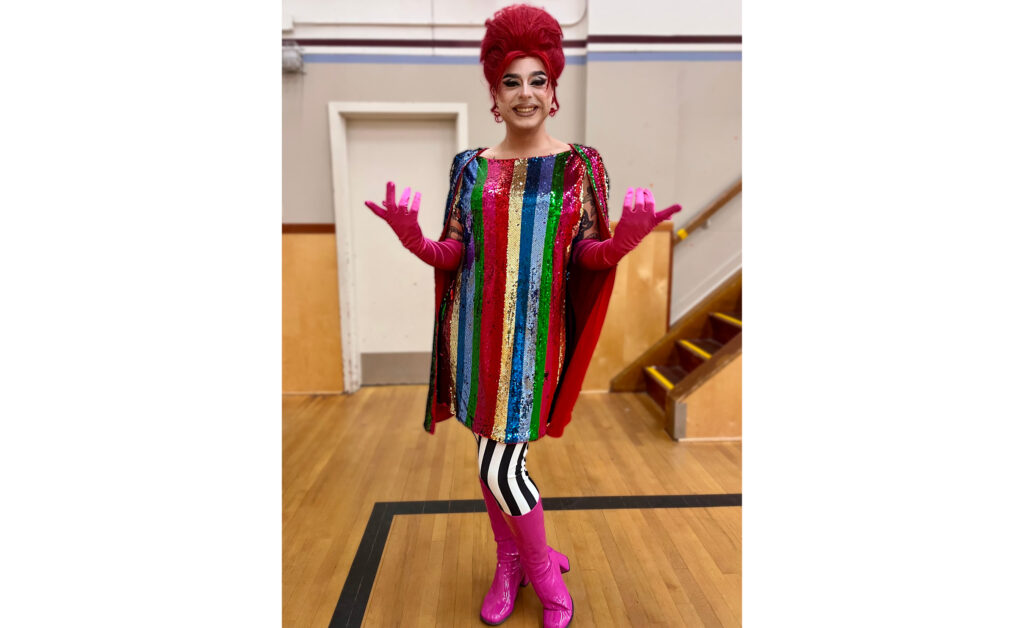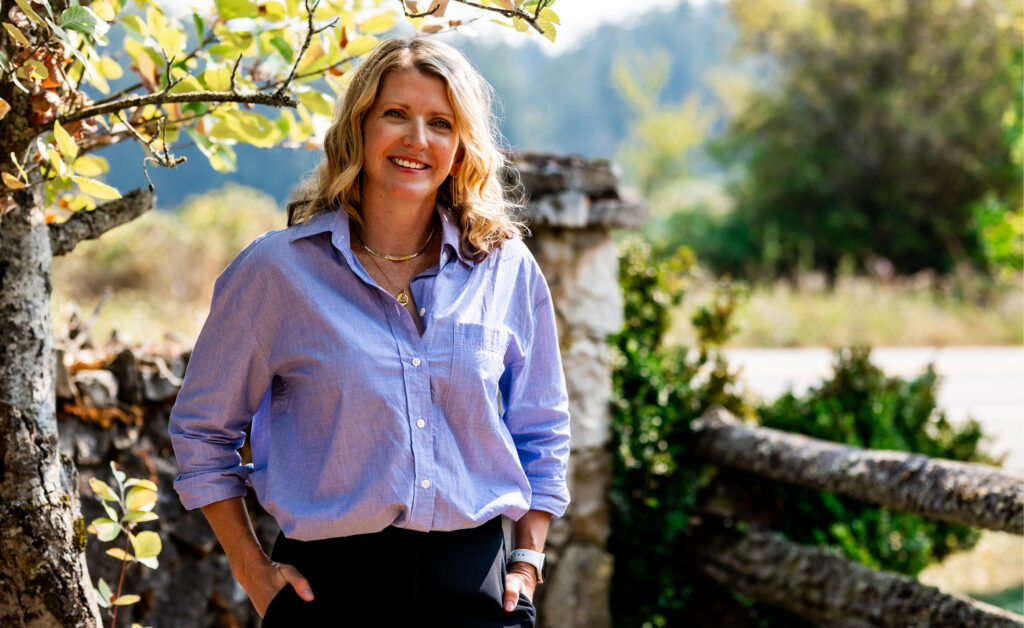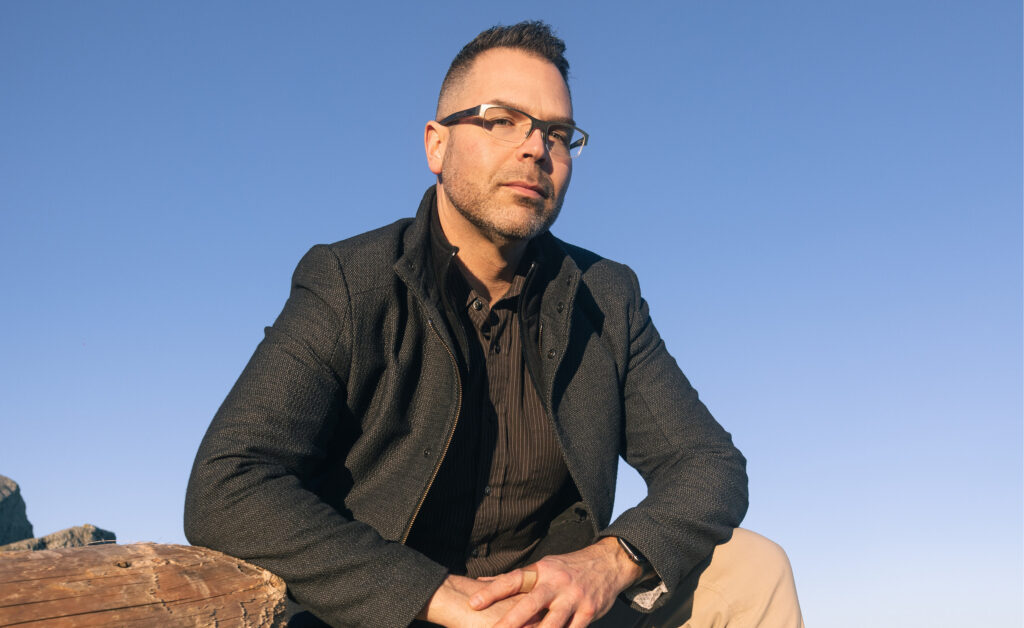Words Jesse Holth
Photo Henrietta Dubét
Local drag queen Henrietta Dubét, otherwise known as Charlie Nash, has been performing for 10 years and is a resident queen at The Vicious Poodle.
We spoke about queer joy, gender identity, and the art of drag performance.
Tell us a bit about yourself – how did you get started with drag?
I started in March 2015 after seeing my first drag show at Paparazzi Nightclub. It was a Gouda Gabor show, and I immediately messaged her afterwards asking how I could get involved – she had me sign up for her “Little Sisters” show, where Jizzelle was kind of my mentor! Since then I’ve helped platform many new performers in town, including my monthly newbie showcase at The Vicious Poodle – the first Sunday of every month!
You said you fell in love with the campiness of it all – what kind of persona did you want to bring to the stage?
Growing up, I always loved camp Disney villains, so aesthetically, that’s something I knew I wanted to represent through my drag (the bad
guys always had the best outfits … ) and is something I’ve been leaning back into lately, makeup wise.
Do you have a favourite performance or one that was particularly memorable?
Whenever big drag names come into town there’s often a few of us who get invited to open for them! It isn’t often we get the opportunity to perform on large stages, so it’s fun seeing what we end up bringing out. Most recently, I had one of my drag children, Ghost of Judith (also Ricky E. Ratmansky), and Call Us Men alum Tragic Mike build me a giant pigeon costume so I could do a silly little dance to Thousand Miles by Vanessa Carlton. The narrative of the number is about how birds were wiped out and replaced by mechanical replicas as tools of the bourgeois.
You won Mr. and Ms. Gay Vancouver Island with Persi Flage in 2016. Was that a significant milestone?
That was huge for both of us! We still do Drag Storytime together through Staches and Lashes Collective – find us on Facebook!
You said the pandemic created challenges for the drag community; what happened?
It nearly halted all forms of expression but the queer community continuously found ways to be fabulous! Whether it was outdoor shows or online, drag performers found ourselves having to learn new skills such as video editing as a means to get our art out to audiences. Once we got back to live performances, we had to shift how shows looked every few weeks with the ever-changing restrictions. From face masks to full plexiglass “aqueerium,” there was definitely always a focus on keeping the community safe.
You mentioned that many drag performers struggle with knowing where their performance identity ends and their life identity begins – how do you navigate this?
Personally, I enjoy having a certain level of separation for my personas, but not everyone is like this! As a gender-fluid individual I appreciate being able to present as femme while in drag, and more masculine out of drag, and I prefer keeping my wardrobes quite separate. But again, not everyone is like that. I’m part of a drag collective studio with some of my drag siblings, Vivian Vanderpuss, Honey Dewme, Shelita Cox, and A Swarm of Bees! This is where I store my drag and get ready for shows; the others all do a lot of sewing and hair styling out of the studio.
Can you speak to the role of joy in drag performance?
Through drag we create characters and tell stories; most often those stories are joyful but we also express other emotions through the art form. From political statements on current affairs to folks pretending to fall over repeatedly to Looney Tunes-esque soundbites, there really is no shortage of what you might end up seeing at a drag show. Victoria is blessed with a lot of campy performers and most of us are partial to stupid humour.
You discovered drag when you were on the beginning of your gender journey – can you elaborate? What does gender mean to you?
I started performing in drag when I was questioning my gender identity and after a decade of performing regularly, I’m thankful to have that consistent outlet. I used to feel oppressed by how I thought people were perceiving me, and being a drag queen definitely acted as exposure therapy for that! I view gender as a performative social construct and no longer care how other people perceive me, as it’s none of my business, which has led to a lot more comfort.
Drag has increased in popularity in recent years, thanks to shows like Drag Race, but you also noted a troubling return to regressive values. How are you addressing these challenges?
That’s a bit of an ongoing thing. It’s hard because while I want to encourage younger queer people to not escalate potentially dangerous situations, at a certain point we have to stand up for ourselves.
Do you have any advice for those looking to get involved in drag?
Watch YouTube tutorials! There’s so much content out there designed to help folks get on their feet! I have a monthly newbie show on the first Sunday of the month at The Vicious Poodle and Sylvester Stalletto also has opportunities for up-and-coming performers.
You’ve participated in Drag Storytime at local libraries; can you speak to the benefits of allowing children and youth to interact with queer adults?
Drag Storytime fosters inclusivity and the acceptance of different gender identities and expression. It’s just like regular Storytime but with a focus on normalizing the existence of queer people, something that I would have benefitted from when growing up in small conservative towns.
How can people find out about local drag performances and events? What are some ways to support the drag community?
Follow drag performers on social media! We’re constantly posting about the shows we’re going to be at on our Instagram stories and are often sharing other shows in the community! Follow me on Instagram: @henriettadubet.
Is there anything else you’d like to add?
Drag is about gender expression and gender celebration, but is also political at its core. Humans are socialized to perform gender in their everyday life, but drag is about playing around with what is deemed as acceptable. At the end of the day it’s just clothes and makeup, but socially these things can divide us. It used to be weird for women to wear pants! Things can change; none of it is that serious!




